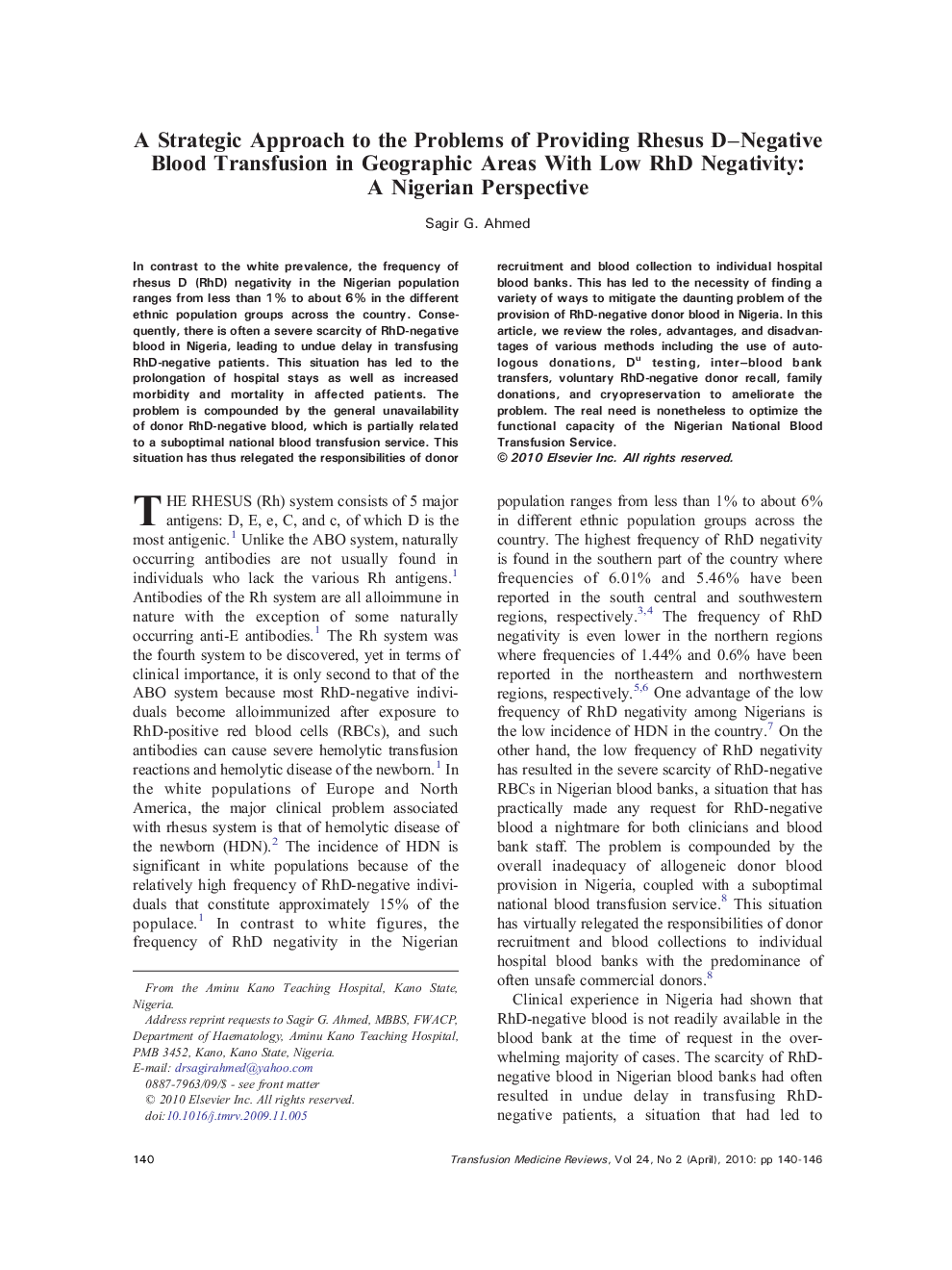| Article ID | Journal | Published Year | Pages | File Type |
|---|---|---|---|---|
| 3336686 | Transfusion Medicine Reviews | 2010 | 7 Pages |
In contrast to the white prevalence, the frequency of rhesus D (RhD) negativity in the Nigerian population ranges from less than 1% to about 6% in the different ethnic population groups across the country. Consequently, there is often a severe scarcity of RhD-negative blood in Nigeria, leading to undue delay in transfusing RhD-negative patients. This situation has led to the prolongation of hospital stays as well as increased morbidity and mortality in affected patients. The problem is compounded by the general unavailability of donor RhD-negative blood, which is partially related to a suboptimal national blood transfusion service. This situation has thus relegated the responsibilities of donor recruitment and blood collection to individual hospital blood banks. This has led to the necessity of finding a variety of ways to mitigate the daunting problem of the provision of RhD-negative donor blood in Nigeria. In this article, we review the roles, advantages, and disadvantages of various methods including the use of autologous donations, Du testing, inter–blood bank transfers, voluntary RhD-negative donor recall, family donations, and cryopreservation to ameliorate the problem. The real need is nonetheless to optimize the functional capacity of the Nigerian National Blood Transfusion Service.
